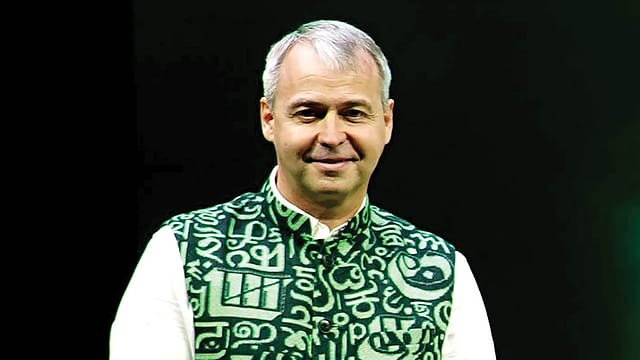Škoda looks to turn the corner in India with Kylaq
ADVERTISEMENT

Czech carmaker Škoda, which entered India over two decades ago, accounts for a mere 1% share of the world’s third-largest passenger vehicle market. The automaker is now looking to scale volumes by getting on the compact sport utility vehicle bandwagon with its newly launched sub-4 metre SUV Kylaq.
Škoda is eyeing 8% share of India's fast-growing compact SUV segment in the financial year 2025-26, Petr Janeba, Brand Director of Škoda Auto India, tells Fortune India. The sub-4 metre SUV segment saw sales of 12.3 lakh units in the calendar year 2024, accounting for 30% of India’s car market. “Kylaq is expected to be the biggest volume driver for the company,” says Janeba. The carmaker is readying a production capacity of 90,000 cars annually for the Kylaq.
Even though India’s compact SUV market has become crowded with 13 models, Janeba believes it is the most “aspirational” segment. “Most people who buy sub-4 metre cars — which contribute 60% to India’s passenger vehicle car market —will all go for SUVs one day,” says Janeba. However, going from a sub-4 metre car to another segment takes longer and happens to very few people, adds Janeba.
Deliveries of the Kylaq, which is priced from ₹7.89 lakh (ex-showroom) to ₹14.4 lakh, are scheduled to begin on January 27.
Janeba says the company has been able to offer this price point due to deep localisation of 96%. “For this segment, we consciously decided not to charge a premium because this is a very sensitive segment where people are looking for the best offer and they are not ready to overpay. Pricing it as we usually do with a price premium would have given us a 3-4% segment share. We decided to do an enhancement of the production capacity at the factory by 70,000 cars and for this, we needed competitive pricing,” says Janeba. “In India, there is very low brand loyalty because the customer is very clever and always wants the best deal.”
Škoda Auto Volkswagen India Pvt Ltd, which represents both Škoda and Volkswagen brands in the country, has a production capacity of 250,000 units for Kushaq, Slavia, Taigun, Virtus and Kylaq. “Kylaq helps not only Kushaq but also Slavia, Taigun and Virtus as well because the car is on the same platform. The scale through Kylaq will help optimise costs of other cars,” says Janeba.
Škoda is counting on its latest offering to bring in potential customers from Tier-2 and Tier-3 cities. The company plans to increase its network from 272 touchpoints in 2024 to over 350 by the end of this year. “A lot of Tier 2-3 cities will get a viable business case for our dealer partners,” says Janeba. There is already over a two-month waiting period for the Kylaq.
Without the Kylaq, Škoda was competing in 25% of India’s overall car market last year. “This year our addressable market will be over 60%. More than half of potential new car buyers are our target audience now,” says Janeba.
Škoda plans to start exports of the Kylaq after September. It currently exports knocked-down kits of India-made Kushaq and Slavia to Vietnam.
The Czech carmaker is also exploring hybrid powertrain for the Indian market with the new generation of locally-made mid-size SUV Kushaq. Kushaq is set to get a facelift this year and the facelift needs to run at least two years, says Janeba. “Hybrid is still a premium thing which costs money. They need to be cost-competitive and there needs to be some scale,” he says.
Škoda is also working on an electric vehicle for the Indian market which is expected to hit the roads at the end of 2027. The carmaker plans to set up a new production line for its locally-developed EV in Pune’s Chakan but is awaiting the fine print of the government’s Scheme for Promotion of Manufacturing of Electric Passenger Cars in India (SPMEPCI) which is expected to come out in March. To attract global automakers, the new scheme slashes import duty from 100% to 15% for EVs with cost, insurance and freight value of $35,000 or more. Under the scheme, automakers are required to invest at least ₹4,150 crore or $500 million on EV manufacturing.